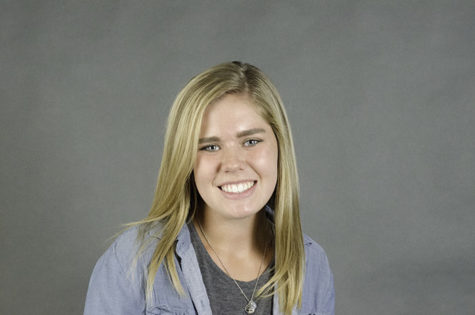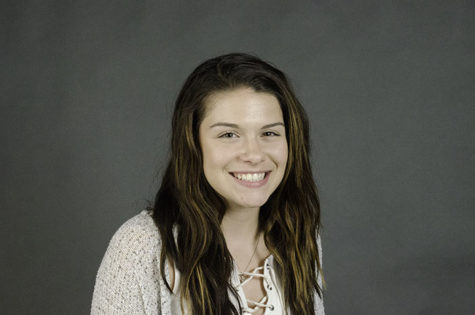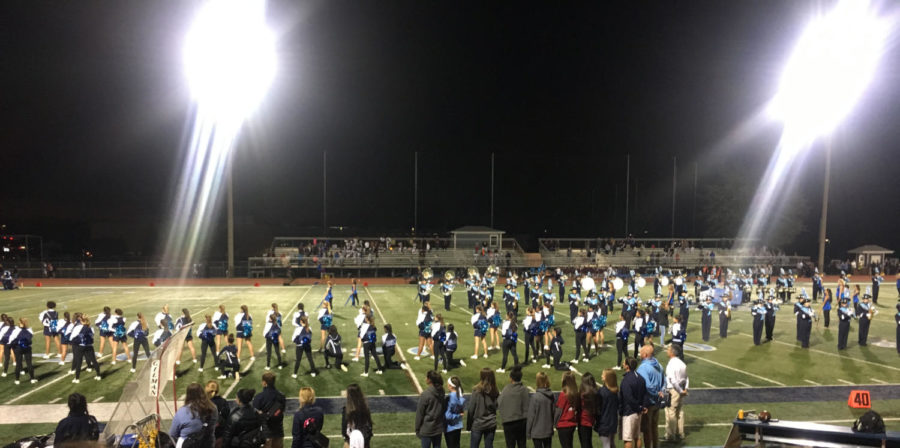Several dance and football team members kneel for national anthem
Several DGS students on the Fillies and Pintos dance teams and varsity football team knelt during the national anthem at the homecoming football game Sept. 29.
Senior Karina Melendez, one of the Fillies who participated in the kneeling, explained her motivation.
“I heard about an experience that my friend had, and it just represented the social inequalities racially. I thought that it would be beneficial for her. She one-on-one faced racial discrimination, and I think it’s fair for us to be able to [stand up to it] during a school game,” Melendez said.
Senior varsity football player Kris Robinson said that he made the decision to kneel because he feels there is negativity throughout society, and the American government and wants to see change.
“I felt like why honor America when it’s not America anymore. No one is free from the issues that we continue to face everyday, and this is a way to get people’s attention and realize a change needs to be made,” Robinson said.
Many wanted to know how coaches reacted and if athletes discussed the topic with their team before making the decision to do this at a school event. Defensive line Varsity football coach Jon Orech explained how his team handled the situation.
“Coach Molinari, our head coach, did a good job of addressing the issue on Monday along with the fact that it was also homecoming. He had said with what is happening in the news, if anybody is going to choose to [kneel], you need to talk to us ahead of time and let us know,” Orech said.
Nobody was sure how the student body and administration would react, and Orech explained to his athletes that they needed to be ready to defend themselves. “If they are going to use football as a venue for expressing political views, and then they need to make sure they are able to support that afterwards,” Orech said.
Melendez also explained that she didn’t want anyone to be offended by her choice to kneel.
“I don’t want people to think that I’m disrespecting our Army or people who fought for the U.S., I’m just trying to say something against social injustices and racial discrimination, and how our president allows it by saying, “You can say whatever you want and it’s protected by the first amendment,’ but you can’t just go around [making] racial slurs; it’s just not right,” Melendez said.
Much of the student body was taken by surprise, being that this has never happened at a school event before. Students typically reacted in confusion, and although everyone has different opinions, they showed respect for those who decided to kneel.
Senior and U.S. Army Soldier David Stefanovski said that although he dislikes the idea of kneeling for The National Anthem, he believes that the students have the right to do so.
“A protest is a protest–you’re not supposed to like a protest, except I don’t see much of a reason to protest the [national] anthem at a high school football game especially since they all stood for the same anthem earlier that day during the assembly anyway. Regardless, there’s a reason for everything. Teenagers are just weird,” Stefanovski said.
Senior Teddy Surdyk also said that it’s never something he would personally do, but respects those who choose to do so.
“I don’t believe that it’s a person’s specific right to do what they want over the flag and what the flag represents is up to them. I, for one, [stand to respect] the military, some might see it as a way to protest for the Black Lives Matter movement or other social issues, so I have no problem with it. But, in my opinion, I believe in standing for the flag,” Surdyk said.
Coach Orech said that the athletes also supported each other. There were only a few who chose to kneel, but regardless of who did, they came back together as a team to play football like any other Friday night.
“People understand that there’s perceptions you have outside of the game… When we put on the uniform, that’s one thing that unifies us all. We can all have differing opinions and differing perceptions, and we live in a country that can allow us to have those perceptions and views, but when the helmets go back on, and we’re out there ready to play, that unifies everybody and it is really good to see that,” Orech said.



